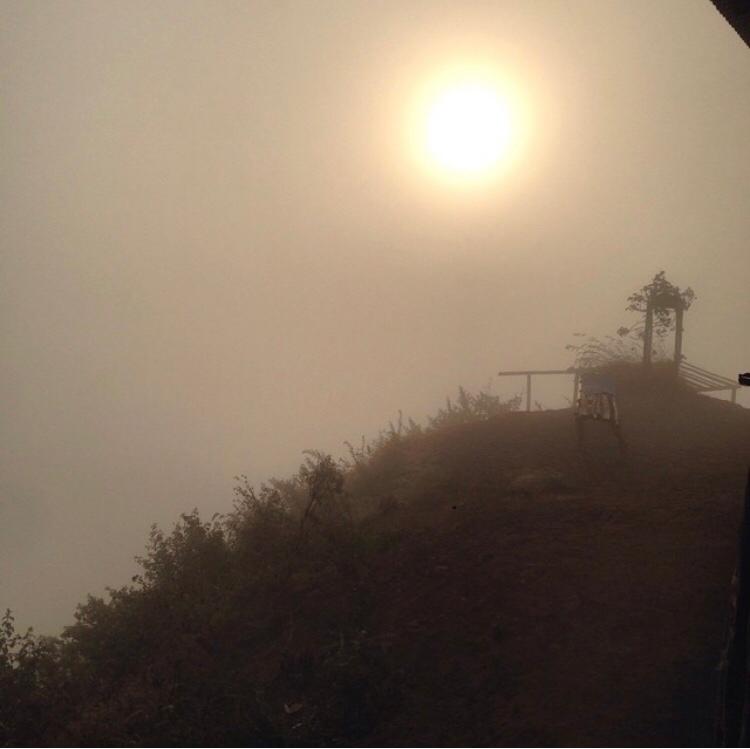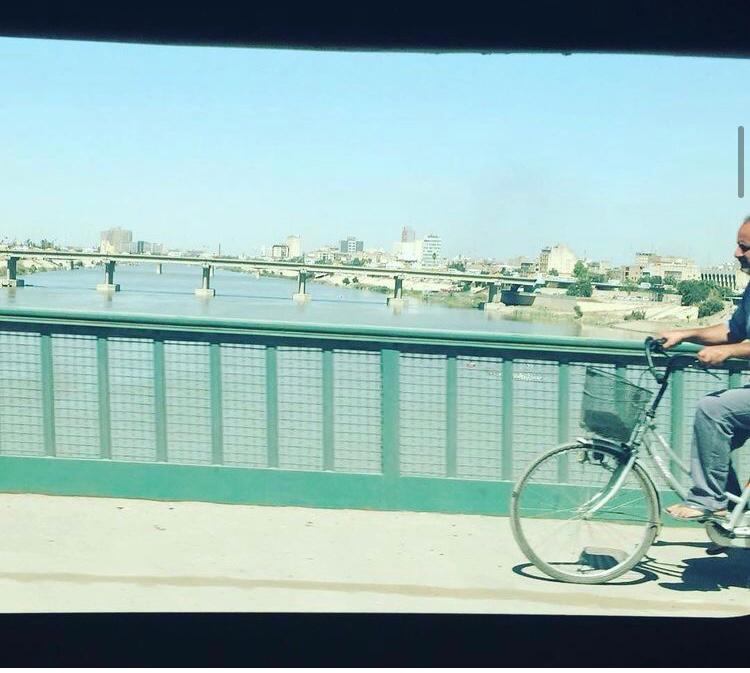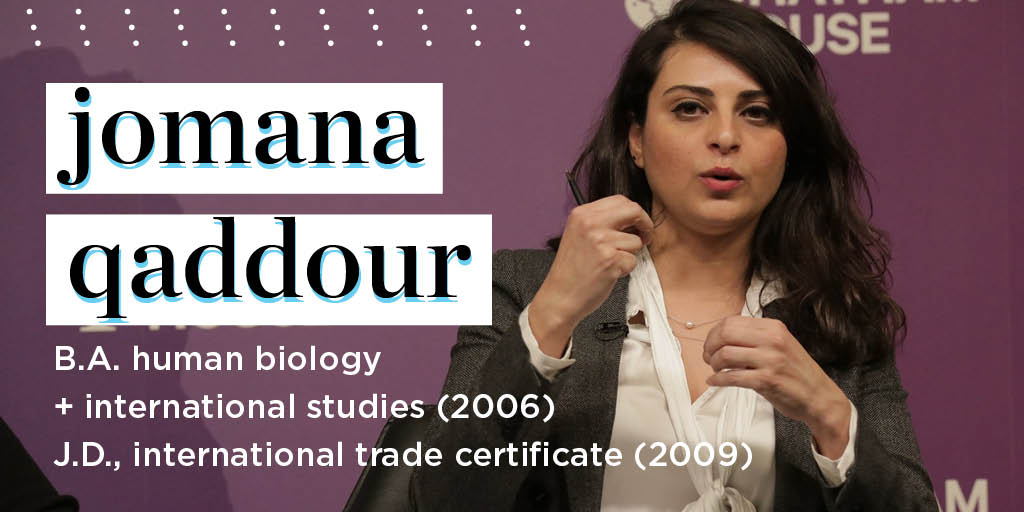
Why Jomana’s a Hawk to Watch:
Questions about America’s role on the global stage are deeply complex and often controversial: When is intervention appropriate? When is it not? Who gets to decide? Those issues are only further complicated during times of war and political unrest abroad. Through her work as a public servant and humanitarian, Jomana Qaddour is seeking answers to questions about the United States’ international influence — what it is, what it should be, and what it can be.
Jomana’s interest in the U.S.’ relationship with the Middle East — including Syria, her country of birth — dates back to her time as a student at KU, where she earned degrees in human biology and international studies in 2006 and a J.D. in 2009. Since graduating, she’s investigated how policymakers make key decisions, why they make them, and how those calls impact the lives of millions overseas.
According to Jomana, one should avoid saying “yes” to opportunities that don’t leave you hungry to learn more at the end of every day. That mindset has undoubtedly guided her own varied professional journey, which has included roles as a Senior Political Analyst at the U.S. Commission on International Religious Freedom, a Senior Research Assistant and Publications Manager at the Brookings Institution, an advisor for Syrian Americans for Biden, and co-founder of a humanitarian nonprofit in Syria. Now serving on the Syrian Constitutional Committee, as head of the Syria portfolio at the Atlantic Council’s Rafik Hariri Center, and a doctoral student at Georgetown Law, she’s continuing her decade-long exploration of America’s involvement in the Middle East.
We caught up with Jomana, who filled us in on her newest roles and research, her mentorship for immigrant Americans and their children, and why — if you can help it — you shouldn’t take a job that doesn’t motivate you to wake up each morning.
Tell us in a sentence or two what you do for a living:
I am a foreign policy professional, working on issues that pertain to America’s involvement in the Levant and the Middle East more broadly. I am also a doctoral student at Georgetown University Law Center.
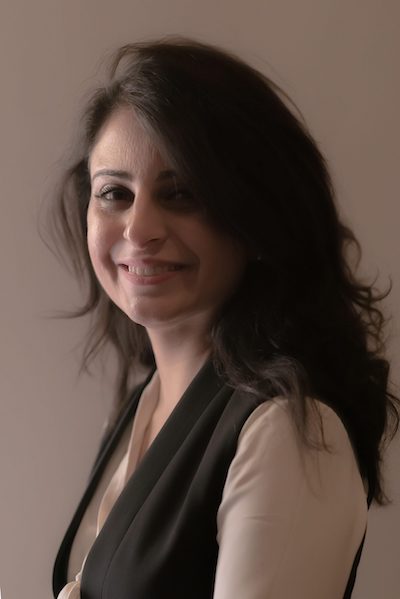
How did you end up doing what you do?
I have always been fascinated with United States’ role in the Middle East, since my time at KU. I first came to Washington to pursue my legal career, but as the Arab Spring unfolded in 2011, I decided to make it my full-time job. I co-founded a humanitarian nonprofit in Syria, the country of my birth, and I saw first-hand the difficulty of trying to deliver aid in an active war zone, in a context unfamiliar to most Americans (America and Syria have had a strained relationship for decades now). I also saw how helpless one could feel working on conflicts but not full time (I was doing my work at my nonprofit all as a volunteer, and continue to do so). I wanted to better understand how our policy makers made decisions that impacted millions of lives in countries far away – what their interests were, their calculations, and how that impacted local populations in those countries. By 2012, I had left the law firm and landed a job at the Brookings Institution, which was my first professional exposure to foreign policy, and I decided I wanted to make the career change permanent.
What do you feel is your biggest achievement so far?
Being involved in the establishment and as an advisor for the group Syrian Americans for Biden. I’m incredibly proud of being one of the more senior Syrian Americans committed to public service for this country. Our parents came from countries that didn’t allow for vibrant democracy or even genuine elections, so being a mentor for immigrant Americans and/or children of immigrants and helping foster both a sense of responsibility and the sense of ownership over this country and the direction it is going is a meaningful experience for me. I am also very grateful for the opportunity to start a humanitarian non-profit in Syria that has served millions of Syrians, both inside the country and in neighboring host countries. Our amazing team of 1200 includes doctors, nurses, psychologists, family planning professionals, and engineers – all Syrians – who insist on serving their own countrymen and women. I am proud of do what I can to help facilitate their work and bring attention to their plight.
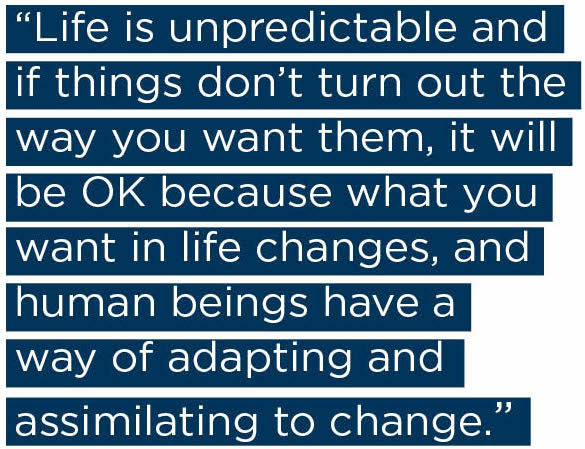
What is one thing you think everyone should know about your research interests?
I am interested in understanding what America’s place in the world should be and can be. It can’t do everything, despite the best of intentions. When is it appropriate to step forward, and when is it most appropriate to let others lead?
What’s your lowest career moment and how did you pick yourself up and move on?
It’s not easy to work on a conflict that has waged on for 10 years, and to watch people you know get killed, displaced, and become refugees in inhospitable lands. But every time I’ve seen this happen, the consolation I have is the great network of friends and colleagues that have experienced this as well, and that realize that we at least have the luxury of watching this as opposed to experiencing it first-hand. A good dose of self-reflection is necessary in order to remain grateful for everything we do have.
Where do you hope to be in 10 years?
No idea! I never thought I would be here 10 years ago. Possibly teaching on the side, given I am working on my dissertation (S.J.D.) at Georgetown Law.
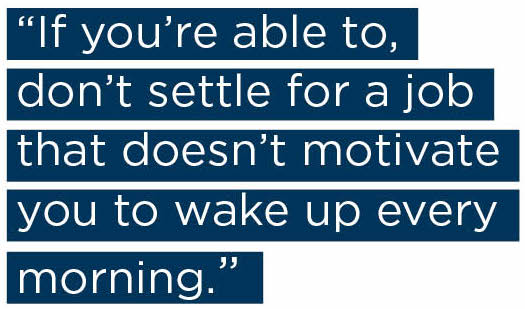
What do you know now that you wish you could tell your 18-year-old self?
Life is unpredictable and if things don’t turn out the way you want them, it will be OK because what you want in life changes, and human beings have a way of adapting and assimilating to change. And usually, life ends up better than you expected it would be. I never thought I would want the things I want today, and I know that I will likely change in the future too – so I try to always leave space for those changes to happen. Nothing is ever fixed.
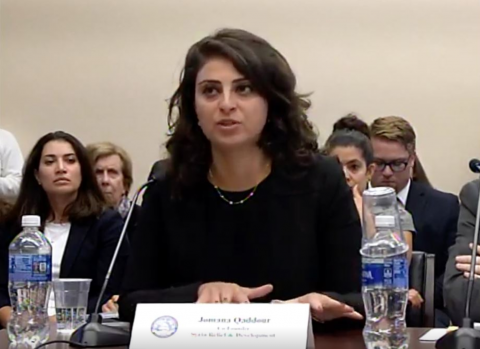
What’s your best career pro-tip?
If you’re able to, don’t settle for a job that doesn’t motivate you to wake up every morning. Not every job will make us do this, but over the longer term, your desire to do work in the middle of the night, your desire to excel and your thirst for knowledge – all those things come when you are excited about what you do. That kind of energy is what drives me.
How did your KU degrees prepare you for your current job?
My professors in law school, especially Professors Raj Bhala and John Head, always reminded us of how big the world was outside of Kansas (I took international law classes with them). They themselves were quite experienced and had worked in different parts of the world, and that always pushed me to dream big and gave me the drive to leave the state and come to a very competitive city like Washington, D.C. I don’t regret it one bit. I also value the friendships I made while at KU, several of which remind me of the sweetness of the Midwest and the learning we did on campus and the nights we spent studying in the library.
What do you do after you’ve clocked out?
I enjoy reading, painting, taking long walks with friends, and most of all, traveling and spending long hours on sunny beaches in the Mediterranean.
What is a fun fact about you that surprises people?
My favorite hike ever was climbing up Mount Batur in Bali, Indonesia. It’s an active volcano, and you have to start the hike at 2 am, but at the top of the mountain you will be met with the most beautiful sunrise of your life.
Meet more of our Hawks to Watch. For more information, visit the Undergraduate Biology Program, the Center for Global & International Studies, and the School of Law at the University of Kansas.
Hawks to Watch are disrupters. They’re poised for greatness, inspiring their colleagues and excelling in their professions. Basically, they’re killing it. Having recently graduated, they are just starting to leave their mark and we can’t wait to see how their story unfolds. These Jayhawks span all industries including business, non-profits, tech, healthcare, media, law and the arts.
